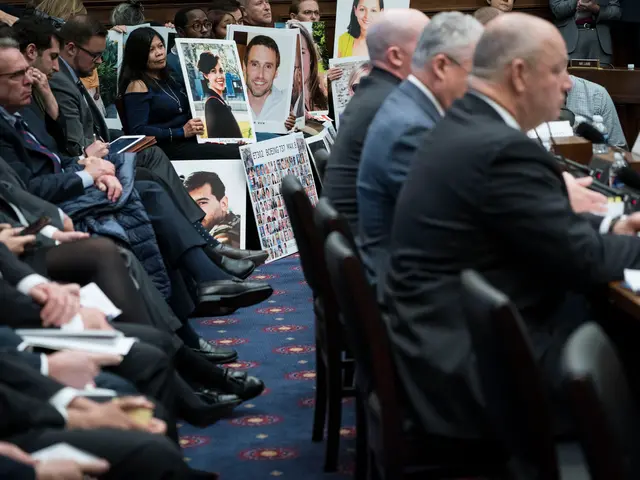A U.S. congressional report blamed Boeing's "culture of concealment" and the U.S. Federal Aviation Administration's "grossly insufficient" certification in its oversight responsibilities for two deadly air crashes of 737 Max planes that killed 346 people. The U.S. House Transportation Committee on Friday released its preliminary investigative report that outlines Boeing's lack of transparency with aviation regulators and its customers as well as Boeing's efforts to obfuscate information about the operation of the aircraft.
The report came days ahead of the one-year anniversary of the Ethiopian Airlines crash, which occurred within six months of Indonesia's Lion Air crash in October 2018.
Both accidents involved the repeated activation of a flight control software function called MCAS, which responded to erroneous signals from a sensor that measures the airplane's angle of attack.
The report said Boeing withheld crucial information from the FAA and 737 MAX pilots, including the existence of MCAS and knowledge that a pilot would need to diagnose and respond to a "stabilizer runaway" condition caused by an erroneous MCAS activation in 10 seconds or less.
Also, the committee found that the FAA's current oversight structure creates inherent conflicts of interest with Boeing that have jeopardized the safety of the flying public.
An international panel of safety regulators reported last year that the FAA outsourced its regulatory tasks to Boeing employees for 737 Max's safety, and Boeing put "undue pressures" on its employees working on 737 Max certification.
Echoing Representative Jesus Garcia who once pointed to Boeing's profit-driven strategy put "undue pressure" over its employment performance, the report cited pressures to compete with Airbus that resulted in extensive efforts to cut costs and to maintain the 737 MAX program schedule by jeopardizing the safety.
The FAA is also in the crosshairs of the congressional report. The FAA management sometimes undercut the authority and judgment of its own technical experts and sided with Boeing on design issues that violated FAA regulations.
The regulatory body was also blamed for "poor, disjointed FAA communication among the agency's own internal offices," according to the report.
"Boeing's design and development of the 737 Max was marred by technical design failures, lack of transparency with both regulators and customers, and efforts to obfuscate information about the operation of the aircraft," according to the report.
In the coming weeks, chairs of the committee Peter DeFazio and Rick Larsen will introduce legislation to address FAA's failures in the certification process, according to a statement of the committee.
 简体中文
简体中文

